
If you’ve ever played a game that made you sit back and ask yourself, “Did I make the right choice?”, then The Inquisitor is about to take that feeling and crank it up to eleven. This isn’t your average action-adventure romp. It’s a bold, unsettling, and brutally thought-provoking journey into an alternative timeline where divine vengeance replaced forgiveness, and justice is as sharp as the sword that delivers it.
Set in a chilling reimagining of Christian history, The Inquisitor drops you into the heavy boots of Mordimer Madderdin—a man of unwavering faith, conflicted morals, and a job that often demands more blood than prayer. Inspired by the bestselling Inquisitor Cycle novels from Polish author Jacek Piekara, the game explores a world where Jesus didn’t die peacefully on the cross. Instead, in His final moments, He unleashed a divine rage and set a new, terrifying precedent for religious authority.
You’re not just playing a character here—you’re inhabiting a role that tests your beliefs, your conscience, and your capacity for both justice and cruelty. You’ll patrol the streets of Koenigstein, a city full of sinners, secrets, and supernatural shadows, tasked with enforcing faith in the most unforgiving ways possible. But the big question isn’t whether you can deliver divine punishment—it’s whether you should.
Released on February 8th, 2024 on PC, PlayStation 5, and Xbox Series X/S, The Inquisitor is not just a game—it’s an experience. A morally gray narrative adventure where every choice matters, every soul has something to hide, and every judgment leaves a stain—on others and on you. Whether you’re a fan of dark fantasy, psychological thrillers, or games that actually challenge your worldview, this is one title you’ll want to put at the top of your must-play list.
Let’s break down everything that makes The Inquisitor one of the most unique, haunting, and unforgettable games of 2024.
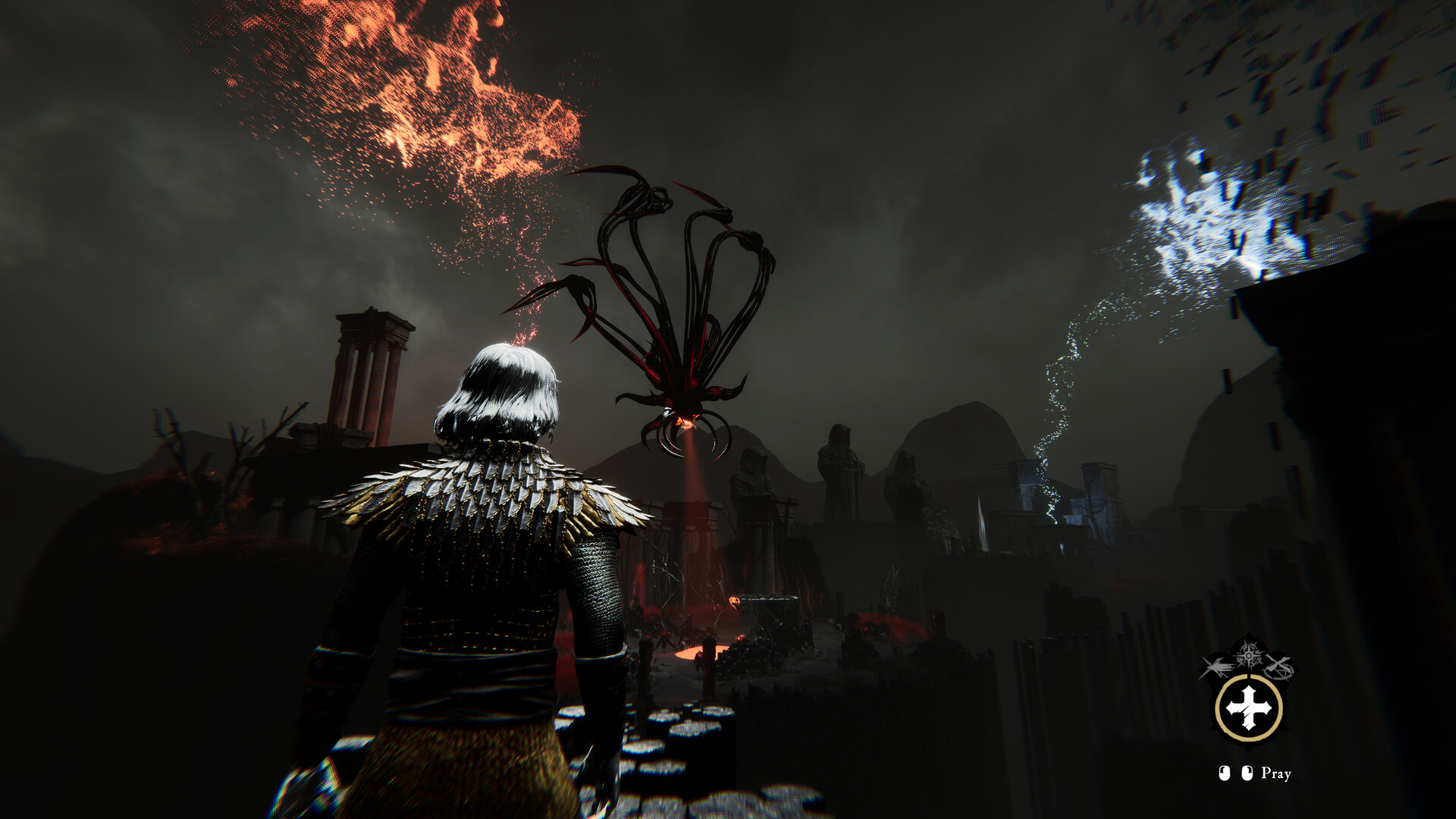
An Alternative Religious Reality That Flips the Script on Redemption
Let’s be honest—most fantasy games tend to follow a familiar formula. You’ve got your good guys, your bad guys, and a neatly packaged version of good versus evil. But The Inquisitor throws that out the window and sets fire to the rulebook.
At its core, the game is rooted in an alternative version of Christian theology, one that takes a sharp and shocking detour from the version most people are familiar with. Instead of a Savior who dies on the cross in a selfless act of forgiveness, this story imagines a moment of divine fury. As Jesus nears death, he doesn’t utter words of grace—he snaps. In a supernatural act of rage and power, he rips himself free from the cross, driven not by compassion but by vengeance.
From that single twist, a whole new world unfolds—one where mercy is viewed as weakness, and faith is enforced through fear, control, and punishment. The peaceful message of “love thy neighbor” has been replaced with “obey or suffer.” The Church, now a militarized and blood-soaked institution, dispatches Inquisitors not to guide the lost, but to hunt them down and judge them harshly.
And that’s where you come in.
You don’t play a chosen hero blessed with divine light. You play Mordimer Madderdin, a man deeply embedded in this terrifying religious system. As an Inquisitor, you act on behalf of a god who demands obedience and offers little in the way of second chances. You’re not here to spread good news—you’re here to weed out heresy, deliver swift justice, and carry out divine judgment. Whether you do so with righteousness or ruthlessness? That’s entirely up to you.
What makes this alternate reality so compelling is how grounded it feels despite its radical premise. The world is grim, yes—but it’s also rich with detail, tension, and deep philosophical undertones. It forces players to confront some uncomfortable questions: What does justice really look like when wielded by the powerful? Can violence ever be truly righteous? Is blind faith more dangerous than no faith at all?
The developers at The Dust didn’t just create a fantasy world for you to explore—they built a mirror of our own, warped and twisted through the lens of zealotry, power, and moral decay. Every street in Koenigstein echoes with whispers of corruption, doubt, and suppressed truth. And as you walk among its citizens, you’ll see firsthand the effects of living under a theology built on fear instead of love.
In a way, The Inquisitor feels more like a moral experiment than a traditional narrative. You’re not just interacting with this religious reality—you’re helping shape it, case by case, soul by soul. And with every judgment you pass, you’re not just changing the game world—you’re defining what this twisted version of “redemption” really means.
If you’ve ever craved a game that challenges both your actions and your beliefs, this isn’t just a breath of fresh air—it’s a gust of cold, hard wind right to the conscience.

The Inquisitor’s Deeply Twisted Storyline and Player’s Role in It
You play as Mordimer Madderdin, a stoic yet complex Inquisitor who’s sent to Koenigstein, a town festering with crime, heresy, and otherworldly rot. Your job? Sniff out sin, judge the unholy, and try to hold your own moral compass steady while the world around you spirals into chaos.
But don’t expect clean answers or easy justice. The Inquisitor thrives on moral ambiguity. You’ll be presented with multi-layered cases where each choice echoes far beyond the immediate storyline. Mercy or punishment? Compassion or cruelty? Every decision shapes Mordimer’s legacy.
And as if dealing with human sinners wasn’t enough, there’s a far more sinister force at work—an evil from another realm trying to pierce the veil between worlds. Mordimer must uncover the truth while also battling this creeping darkness.
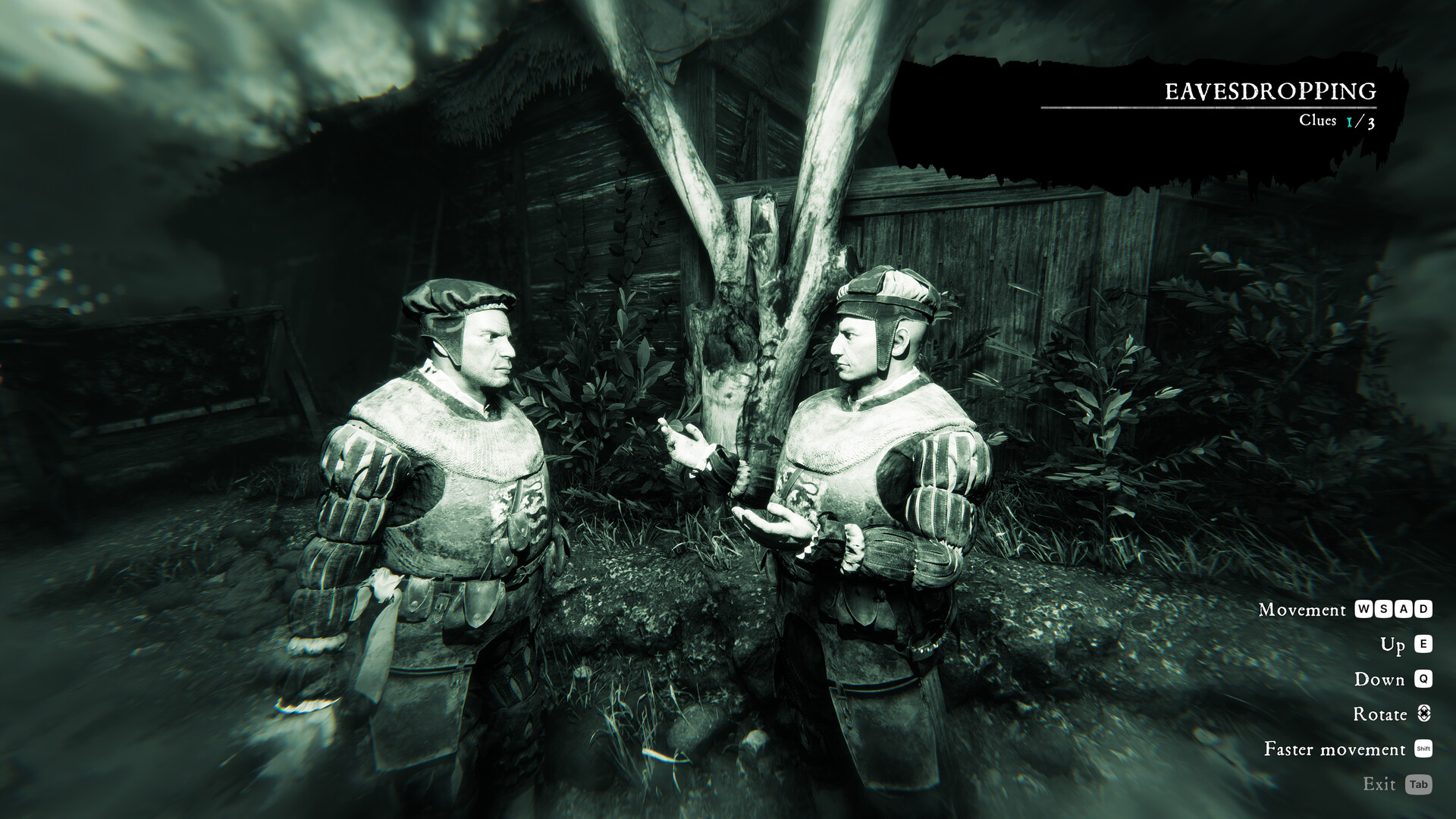
Gameplay Mechanics That Mix Sleuthing, Swordplay, and Moral Judgment
What makes The Inquisitor such a standout experience isn’t just its story—it’s how that story is told through gameplay that keeps you constantly questioning your choices. The mechanics here aren’t just about completing tasks or surviving combat. They’re designed to immerse you in a world where your role as an Inquisitor carries real weight—and serious consequences.
Rather than sticking to a single genre, the game blends multiple elements into a seamless, engaging experience. You’ll shift between detective-style investigations, tense interrogations, and strategic sword-based combat, all while navigating the morally gray decisions that come with judging others in a world built on fear and faith.
Morality-Driven Casework That Feels Personal
At the heart of the gameplay is your role as a judge—not just legally, but spiritually. You’re constantly assigned to investigate crimes and alleged heresies, gathering clues, interviewing townsfolk, and piecing together the often messy truths behind each situation.
These aren’t simple black-and-white cases. Instead, they’re deeply layered, full of contradictions, lies, half-truths, and emotional complexity. Sometimes the accused is guilty, but of what? Sometimes the victims are hiding their own sins. And more often than not, you’ll find yourself asking, “Is justice really being served here—or am I just part of a broken system?”
Your decisions carry weight. NPCs remember how you’ve treated others. Mercy might earn respect—or make you look weak. Brutality may instill fear—but could also turn allies against you. This isn’t just roleplay—it’s reputation management with a soul.
Branching Dialogue and Player Choice That Shapes the Narrative
Dialogue plays a massive role in The Inquisitor, and it’s far from filler. Every conversation is an opportunity—to uncover truth, to manipulate, to show empathy, or to tighten your grip on power. Choices during interrogations and casual talks influence the path of the story, relationships with key characters, and even the overall ending of the game.
And the best part? The game never holds your hand or tells you what the “right” answer is. That’s up to you to decide—and live with.
Interrogations That Are More Than Just Q&A
When suspects won’t talk—or when the crime is especially heinous—you’re given the option to conduct interrogations that reflect the era’s harsh justice system. These sequences are brutal, morally complex, and entirely optional. But they’re never just about violence—they’re about control.
You can choose to go the psychological route, using persuasion, intimidation, or deception, or you can apply more physical means. But know this: every time you resort to torture or coercion, it says something about the kind of Inquisitor you’re becoming—and people will notice.
Sleuthing That Feels Like Real Detective Work
Mordimer isn’t just a zealot with a sword. He’s also a highly skilled investigator. As you move through the grim streets of Koenigstein, you’ll examine crime scenes, collect physical evidence, analyze documents, and connect clues through a detailed case journal.
What makes the sleuthing aspect so satisfying is that it’s not spoon-fed. You’ll need to actually think, analyze, and sometimes return to previously visited areas with new information. You’re doing real detective work, and the game respects your intelligence while rewarding your curiosity.
Sword-Based Combat When Diplomacy Fails
Not every confrontation can be solved with words. When heretics fight back—or when more supernatural threats emerge—you’ll need to draw your sword. The combat system is melee-focused, built around timing, positioning, and exploiting your enemies’ weaknesses.
Don’t expect a button-mashing power fantasy here. Combat in The Inquisitor is precise and punishing. You’ll need to learn how to block, parry, dodge, and counter effectively if you want to survive. Every fight feels earned, and your victories feel like true tests of skill.
As Mordimer grows, you’ll gain new combat abilities, making it easier to adapt to different enemies and playstyles. Whether you prefer calculated duels or aggressive takedowns, the system gives you just enough depth without becoming overwhelming.
Choices That Bleed Into Every Gameplay Layer
What really ties everything together is how your choices influence every layer of the gameplay experience. Your investigative tactics affect how much evidence you gather. Your approach in interrogations determines how cooperative NPCs will be. Your combat victories can either solve problems or escalate them. And your moral decisions shape Mordimer’s story—sometimes in haunting ways.
It’s a rare thing in gaming: a system where everything you do matters, and nothing is truly isolated. Everything you say, decide, or even hesitate to do changes your path in The Inquisitor.
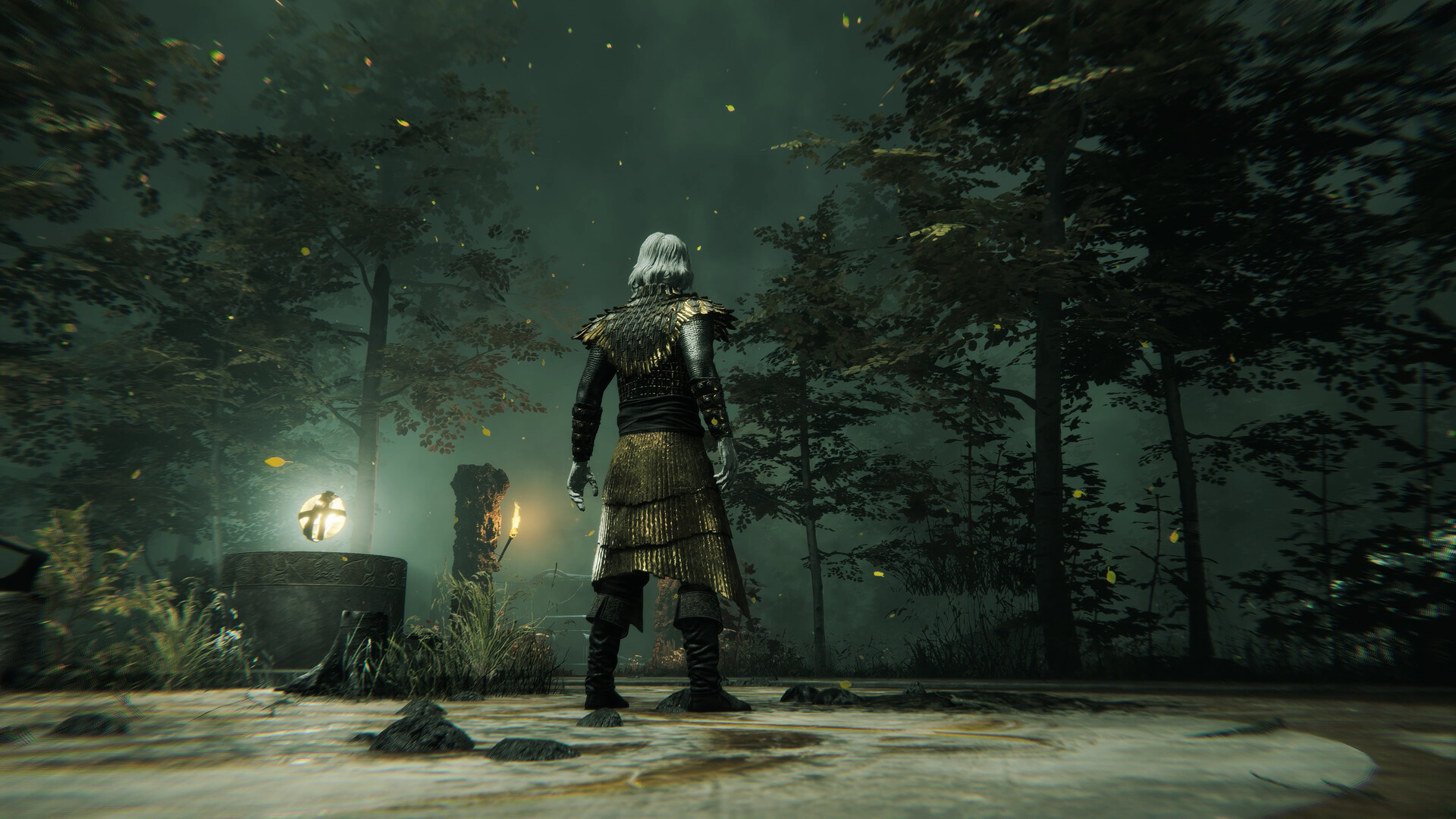
Release Date, Platforms, and Why It’s a Must-Play Title in 2024
Released on February 8, 2024, The Inquisitor made its debut on PC, PlayStation 5, and Xbox Series X/S. As of now, it remains one of the most original dark fantasy titles of the year—and it’s easy to see why.
It marries the raw narrative power of RPG storytelling with the immersive elements of detective games and action combat. And the best part? You don’t have to be a fan of the book series to dive in. The game stands solidly on its own, even as a newcomer.
The production value, voice acting, and environmental storytelling make Koenigstein feel disturbingly real. It’s not just a game—it’s a deeply uncomfortable, thought-provoking experience wrapped in digital flesh and bone.
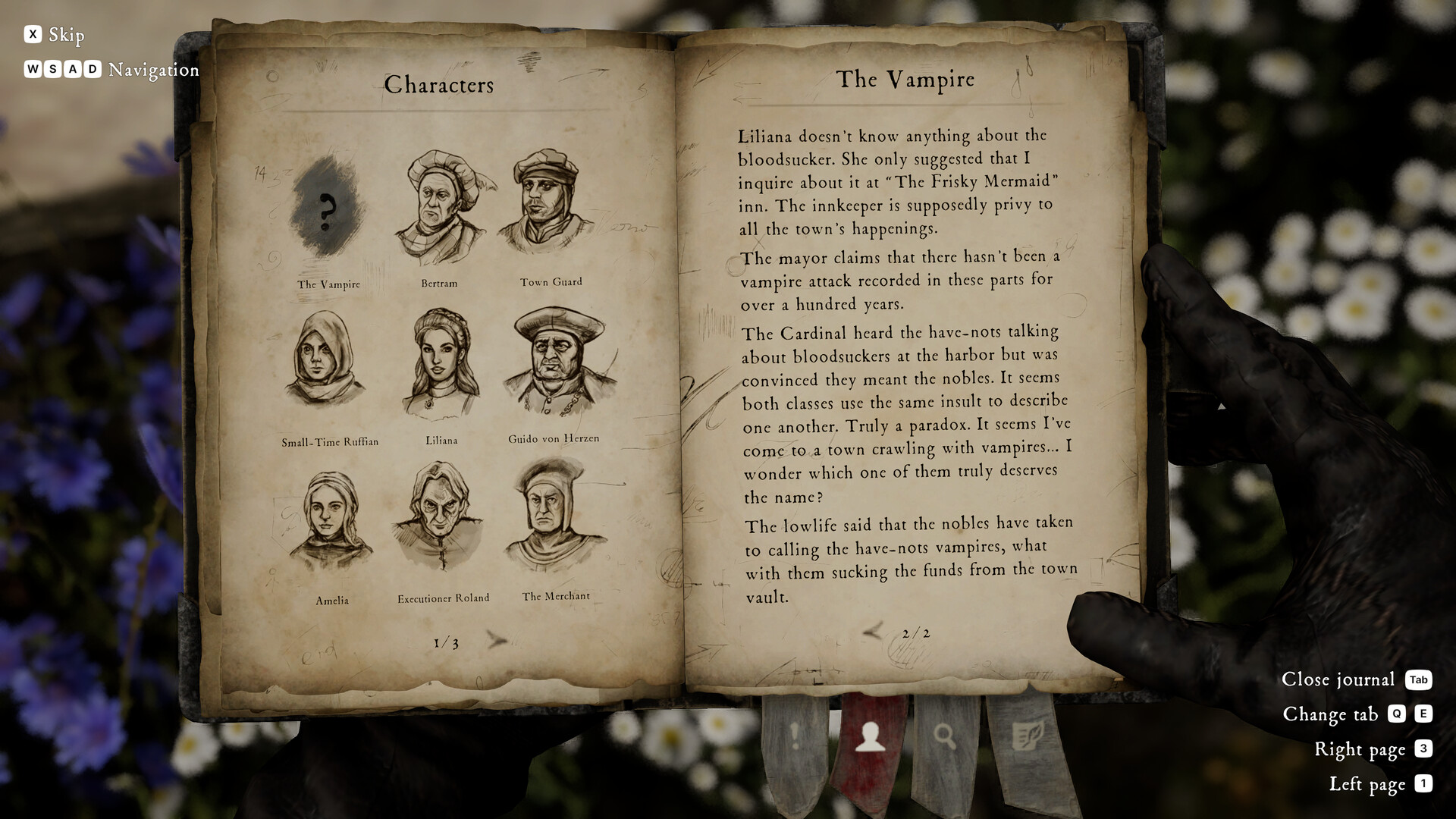
Final Verdict: Should You Walk the Bloody Path of an Inquisitor?
At the end of the day, The Inquisitor isn’t just a game—it’s a test. A test of your morals, your instincts, and how far you’re willing to go in the name of justice, faith, or power. It takes bold risks, and while its themes might be unsettling for some, that’s exactly the point. This game doesn’t play it safe—and honestly, that’s what makes it so unforgettable.
From its deeply immersive world to its complex, non-linear storytelling, The Inquisitor offers something you won’t find in your average fantasy title. You’re not a hero in shining armor or a chosen one destined to save the world. You’re a judge with blood on your hands, a sword at your side, and a soul constantly balancing on a moral knife’s edge. And that’s what makes it hit so differently.
The gameplay is tight, the world-building is rich, and the choices you make genuinely matter—not just in terms of outcomes, but in how they make you feel. It’s rare to find a game that blends detective-style investigation, psychological exploration, and full-on action combat with such a cohesive and compelling narrative arc. Whether you’re interrogating a trembling suspect, unlocking the twisted secrets of the Unworld, or facing a spiritual entity that wants you dead, there’s never a dull moment in Mordimer’s journey.
And let’s not forget: this is only the first major title from The Dust. That alone is impressive. The polish, the depth, and the sheer audacity of its vision show that this small Polish studio has the guts—and the talent—to compete with the industry’s biggest names.
So, should you play The Inquisitor?
Absolutely. But go in knowing it will challenge you. It will make you uncomfortable. And it will make you question what justice really means when faith is used as both sword and shield.
If you’re ready to dive into a morally complex world full of darkness, judgment, and consequence, then this is a path you must walk—no matter how bloody it gets.
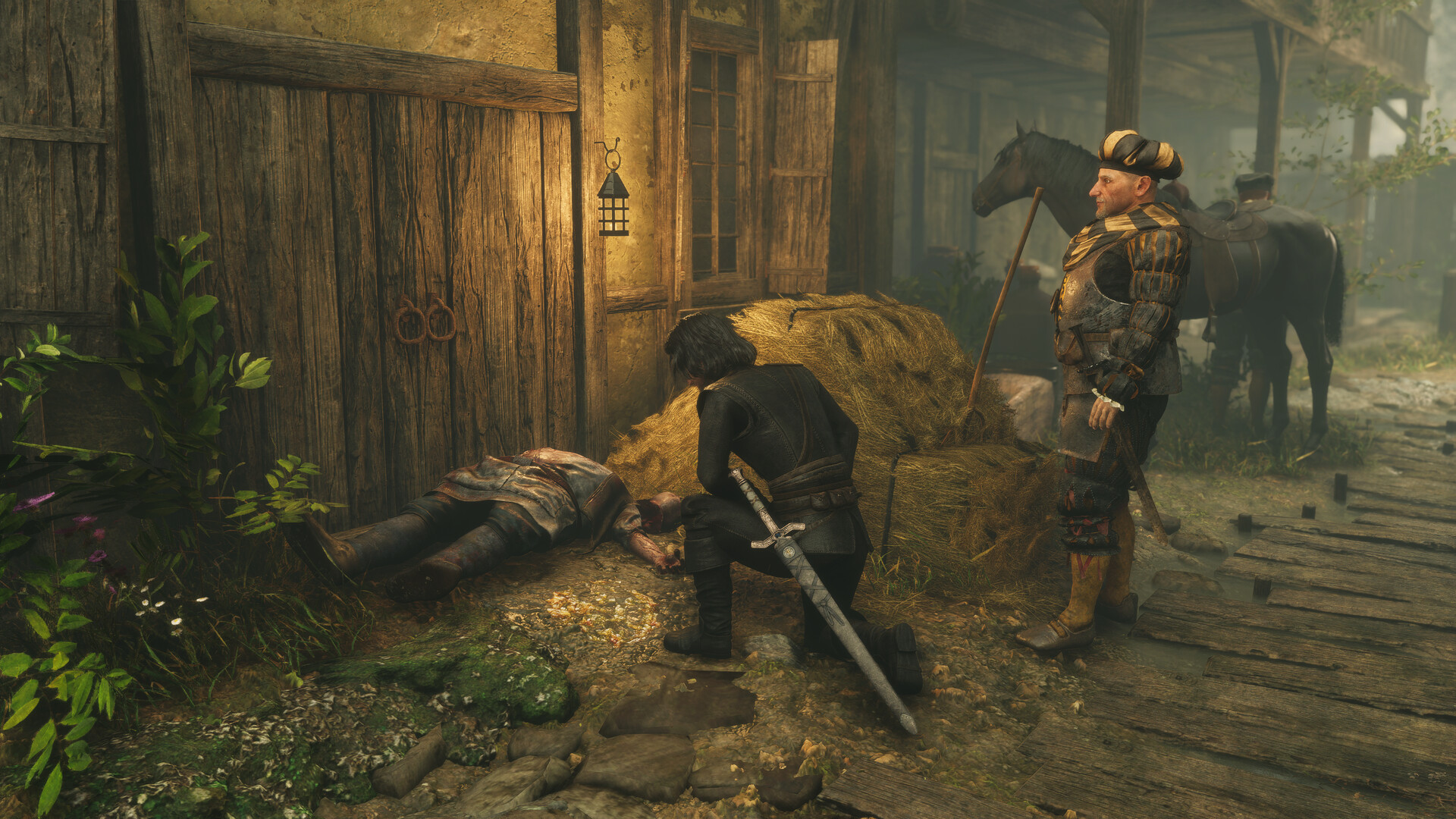
FAQs: Your Burning Questions About The Inquisitor Answered
- Is The Inquisitor based on a book series?
Yes! It’s inspired by The Inquisitor Cycle by Jacek Piekara, which reimagines Christian history in a brutally dark way. - Is the game linear or does it have multiple endings?
The game features a non-linear story with branching paths, giving you multiple ways to shape Mordimer’s fate. - What kind of combat can players expect?
Combat is sword-based and strategic. You’ll need to time your blocks, parries, and strikes carefully—button-mashing won’t get you far. - Can I play The Inquisitor without reading the books?
Absolutely. The game stands on its own, and while fans of the novels will catch deeper references, new players won’t feel left out. - What makes the Unworld mechanic so special?
The Unworld allows you to uncover hidden truths inside people’s souls, adding a psychological twist to your investigations—and a chilling layer of danger.